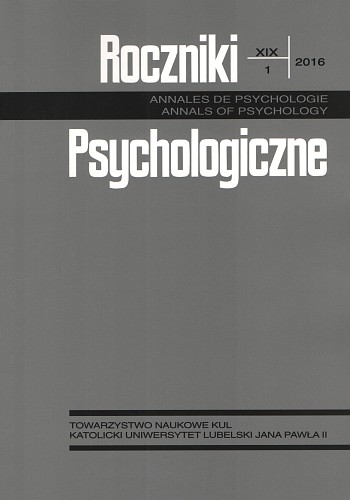Kiedy potrzeba domknięcia sprzyja złożonemu poznaniu
When the need for closure promotes complex cognition
Author(s): Paweł Strojny, Małgorzata Kossowska, Agnieszka StrojnySubject(s): Social Sciences, Psychology, Personality Psychology
Published by: Towarzystwo Naukowe KUL & Katolicki Uniwersytet Lubelski Jana Pawła II
Keywords: need for closure; cognitive strategy; social judgment; knowledge formation; information processing
Summary/Abstract: Lay epistemic theory is one of the most popular theoretical frameworks describing the knowledge formation process. According to it, the central variable determining the epistemic process is the need for cognitive closure. In most cases, high levels of this motivation are associated with simplified and accelerated processing of information. This can lead to an overly simplified understanding of this variable. In fact, there are reasons to believe that the typical relationship is reversed under certain circumstances. The paper is a review of the research supporting this prediction. Results were analyzed with particular emphasis on two postulates of the theory: the two phases of the epistemic process and the dual nature of the need for cognitive closure.
Journal: Roczniki Psychologiczne
- Issue Year: 19/2016
- Issue No: 1
- Page Range: 9-25
- Page Count: 17
- Language: Polish

